The Role of Nurses and Technicians in Hair Transplants
During your research into hair transplants, you may have seen that doctors, nurses, technicians, or all of the above, are often involved in the procedure. So, who does what and why are so many people needed for the treatment? Clinics will vary in how they set up and organise their staff but we will look into the role of doctors, nurses, and technicians in relation to hair transplant clinics in Turkey particularly. Many Turkish hair transplant clinics offer “mega-session” hair transplants, which is the term used when more than 1200-2000 grafts are transplanted in one session. As well as examining the role of doctors, nurses, and technicians, we’ll also look into the steps of a hair transplant, why technicians are involved in the procedure, and introduce you to some of the staff involved in our Qunomedical approved hair transplant clinics.
Hair Transplants Step by Step
There are a few different techniques when it comes to hair transplantation surgery. The most popular ones are Follicular Unit Extraction (FUE), Follicular Unit Transplantation (FUT), and Direct Hair Implantation (DHI). There are similarities between all three of these techniques, however, we will look at FUE particularly, the steps involved, and the approximate timings for each.
Pre-op consultation: 20-30 minutes
Administration of local anesthetic and harvesting of the hair grafts: 2-3 hours
Canal opening: 30-45 minutes
Inserting/implanting grafts: 2-3 hours
Post-op consultation: 30-60 minutes
The steps that can have the greatest effect on the outcome of your hair transplant are the pre-op consultation and the canal opening. During the pre-op consultation, you and your doctor will set out a plan for where you want your new hairline to be. This is the time to talk about what you want your hair to look like and what level of coverage you can reasonably expect from your treatment. Canal opening involves the creation of the canals or channels that receive the transplanted hair. These are important as they’ll determine the direction in which your hair grows. It’s important that this matches your hair’s natural patterns to blend in seamlessly. It’s important to remember that even though you might have a very specific idea about how you want your hair to look after the procedure, it’s the doctor’s job to determine your eventual treatment and coverage. This will depend on what is medically feasible in your case. Rest assured they will always do their best to accommodate your priorities.
Doctors, Nurses, and Technicians: What Are Their Roles?
The medical staff involved in each step of a hair transplant does vary from clinic to clinic. Before beginning your hair transplant journey, your Qunomedical Patient Manager will be able to provide you with information on specific clinics and how they organise their staff.
Doctors and Nurses
A doctor or nurse will always be the one who is with you for the pre-op consultation and planning. Nurses who specialize in hair transplantation often have a similar or greater level of experience and expertise in the procedure as the doctors that they work together with. Some nurses are also referred to as technicians but not all technicians are qualified nurses. This is an important distinction but it can cause some confusion. A doctor or nurse will also perform aspects of the hair transplant that require incisions to be made in the head. This includes preparation for harvesting the hair grafts and the creation and opening of the canals for implantation. It’s also common for a doctor or nurse to conduct the post-op consultation.
Technicians
Technicians generally assist with preparing and implanting the hair grafts, aftercare, and general assistance as needed. However, you may have noticed above that the steps undertaken by technicians usually take a few hours, while those undertaken by a doctor or nurse generally take less than an hour. This means that you may not see the doctor or nurse as often as you might expect and will mostly be tended to by technicians. This isn’t something to be concerned about though. Many of our Qunomedical approved doctors and nurses have personally trained their technicians. They understand that the key to a successful hair transplant depends as much on the skill of their technicians as anything else, and they expect them to maintain high standards at all times.
Find the Right Hair Transplant Specialist at a Fraction of the Cost
Qunomedical only lists hair transplant clinics and doctors that have been thoroughly vetted with quality and affordability in mind. Contact us for your 100% free, non-binding assessment.

Why Are Technicians Needed?
Due to improving technology and lowering hair transplant costs, there has been an increase in the number of hair transplant clinics worldwide. Many often claim to offer low-cost hair transplants because they are performed by technicians. However, the definition of who qualifies as a “technician” is often unclear and — in some cases — it can be hard to know whether an experienced doctor or nurse will be involved in the procedure at all. At Qunomedical, we strive to bring transparency and clarity in this area, to minimize confusion. All of our Qunomedical approved clinics are required to provide full details around the involvement of doctors and nurses and communicate this to patients. With that being said, when there are doctors and nurses involved, why are extra technicians also needed?
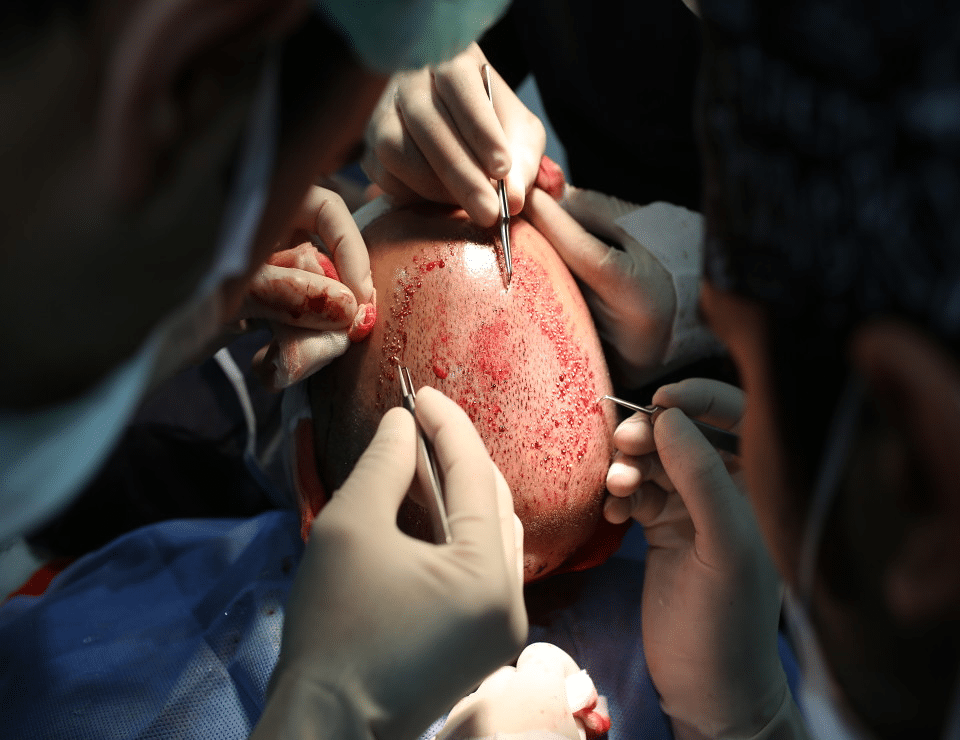
Length of the Procedure
A hair transplant can take anywhere from 4-9 hours. Like any lengthy medical treatment, assistance helps everything go smoothly and reduces the risk of fatigue.
Increased Efficiency
It’s important that each stage of a hair transplantation is performed as efficiently as possible. This is especially vital when it comes to extracting the hair grafts as these can only be detached from the body for a limited amount of time before they become damaged and unusable. Therefore, having two technicians available to carry out this stage can make things a lot faster and reduce the risk of damaging or losing grafts.
Multi-Tasking
During a FUE hair transplant, technicians will be analyzing and separating the thousands of grafts that were harvested while the doctor concentrates on creating the canals to receive the grafts.
Alleviating Strain
Looking at hairs through magnification scopes in bright light for several hours. Carefully harvesting thousands of hair grafts. Creating the hair canals with natural looking spacing and density. All of these tasks take concentration, stamina, dexterity, and coordination. Having extra technicians in the team to help out with these tasks can alleviate some of the strain on doctors and nurses. Anyone who has repeated the same task for hours on end understands that this can cause abilities to start to decrease over time, no matter how skilled you are. This is why a doctor or nurse will have a team of trained technicians to assist them and rotate through the various tasks of the transplant procedure. Below, we’ve listed some of the nurses and technicians involved in Qunomedical approved clinics.
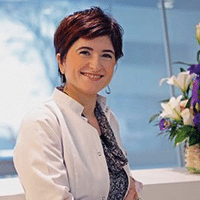
Oya Sisman - Head Nurse
Nurse Sisman earned her degree in nursing in 1993. She has been working at Istanbul Aesthetic Center as a hair transplantation practitioner and coordinator since 2005. She completed a course in scalp micropigmentation in 2008. With almost 15 years experience, she is the head nurse of the hair transplantation team and specialises in FUE hair and beard transplants, scalp micropigmentation and PRP treatments.
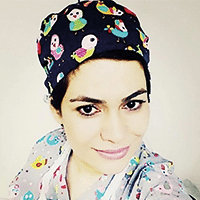
Somayeh Masoomzadeh (Sanem) - Nurse & Technician
Nurse Sanem graduated with her degree in nursing in 2004. She worked as a nurse and then completed her training in hair transplantation in 2006. She has 13 years experience at various hair transplant clinics in Iran and Turkey and has been at Istanbul Aesthetic Center since 2016.
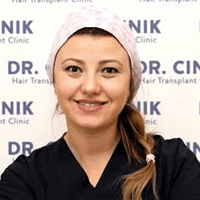
Sündüz Eryılmaz - Team Leader & Nurse
Nurse Eryılmaz trained in health services and received her degree from Anadolu University. She has worked as a hair transplant technician in various clinics throughout Istanbul since 2005 and joined Dr. Cinik Clinic in 2016.
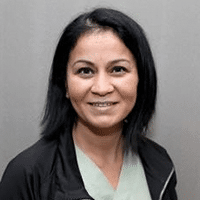
Yeter Küce - Supervising Nurse
Nurse Küce completed her nursing degree in 1998 at Ege University. Since that time, she’s worked as an emergency room and intensive care unit nurse at Şişli State Etfal Hospital and was the supervising nurse at Etiler Hospital and Esteworld before joining Dr. Cinik Clinic in 2018.
Find the Right Hair Transplant Specialist at a Fraction of the Cost
Qunomedical only lists hair transplant clinics and doctors that have been thoroughly vetted with quality and affordability in mind. Contact us for your 100% free, non-binding assessment.
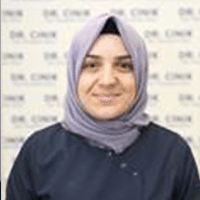
Eda Asil Cinik - Nurse & Technician
Nurse Cinik graduated in 2010 from Bilgi University with her Bachelor’s in nursing. She completed an internship at Şişli State Etfal Hospital as an intensive care unit, emergency and surgery nurse. She joined Dr. Cinik Clinic in 2016 as a nurse and technician, having previously been a nurse and technician at Medical Park Hospital for 3 years.
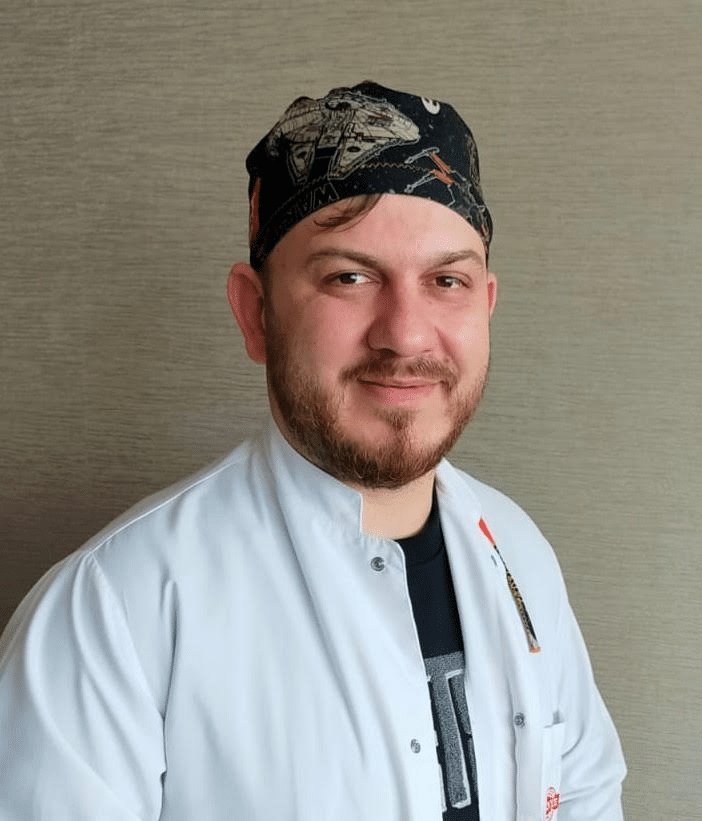
Serkan Yavuz - Plastic, Reconstructive and Aesthetic Nurse
Nurse Yavuz earned his nursing degree in 2010 from Istanbul Okan University. He began working as a Plastic, Reconstructive and Aesthetic Nurse at GOP Hospital immediately after. He’s been performing hair transplantation for the past 9 years.

Beste Başdüzen - Plastic, Reconstructive and Aesthetic Nurse
Nurse Başdüzen received her nursing degree from Istanbul Bilim University Florence Nightingale Hospital School of Nursing in 2012. For the past 7 years, she’s been a Plastic, Reconstructive and Aesthetic Nurse at GOP Hospital. She received her hands-on training in hair transplantation from the plastic surgeon Prof. Dr. Cenk Şen.
FIND THE RIGHT SPECIALIST AT A FRACTION OF THE COST.
Qunomedical lists only the top clinics and doctors in the world. Contact us for your free quote.
Disclaimer
The information in this article is for educational purposes only and does not replace medical advice. Always consult your doctor before starting any treatments.
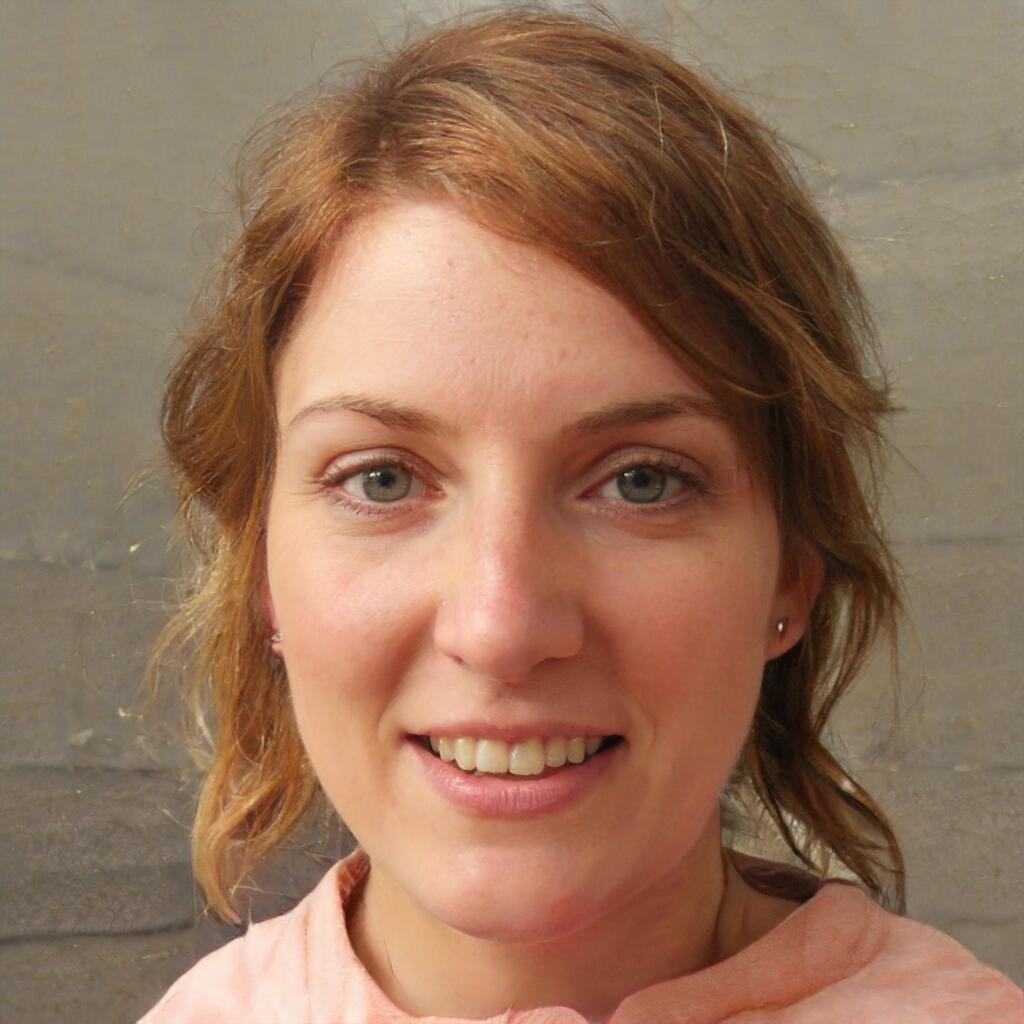
Patient manager
Frieda
Your personal Patient Manager
Let's talk
Still unsure? Feeling overwhelmed? Talking to a real person can give you the guidance and reassurance needed. You don’t have to do it alone. Let’s find the right doctor together.
